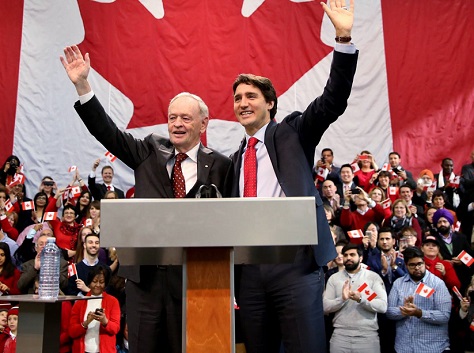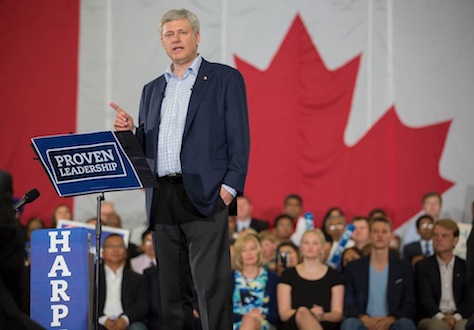
Traditionally, the Liberal Party of Canada occupied the great center (and center-left) space of the country’s politics — and it was a recipe that gave the party control of Canada for nearly 70 years in aggregate during the 20th century.![]()
In the 21st century, however, the party has struggled to find its voice. In 2004, prime minister Paul Martin lost the party’s majority; in 2006, Stephen Harper’s Conservative Party wrested a minority government from Martin; in 2008, the Conservatives gained while Liberal leader Stéphane Dion lost 18 seats; and, of course, in the 2011 election, the Conservatives finally unlocked a majority government while Dion’s successor, academic Michael Ignatieff lost all but 34 seats in the House of Commons and ceded the official opposition, for the first time in Canadian history, to the traditionally progressive New Democratic Party.
Under Justin Trudeau, the scion of perhaps the most lionized Liberal prime minister of the 20th century, you might have expected the party’s fortunes restored as the natural force of Canadian government. That hasn’t happened, and the NDP, under Thomas Mulcair, is locked in a tight three-way race with Trudeau’s Liberals and Harper’s Conservatives (vying, in the midst of a fresh recession, for a fourth consecutive term).
For much of the spring and summer, Trudeau couldn’t seem to get a break. Conservative attacks about Trudeau’s relative inexperience (instinctively reinforced, fairly or not, by his youthful good looks) seemed to gain traction, and the NDP’s surprise win in the Albertan provincial election forced voters to consider Mulcair as a suitable alternative. By the end of August, the Liberals were trailing in third place. Trudeau’s support for the Harper government on Bill C-51 (the Anti-Terrorism Act) disappointed leftists as a knee-jerk attack on civil liberties.
But that’s changed over the course of the past three weeks and, for the first time since the campaign began, the Liberals have pushed (very, very narrowly) the NDP out of first place in the CBC aggregate poll tracker.
That change, however subtle, has coincided with Trudeau’s success in drawing a distinction between Liberal and NDP policy on deficits — a massive u-turn on Trudeau’s prior pledge to balance Canada’s budget if elected prime minister. It’s a gambit not without risk, opening Trudeau to charges of flip-flopping and reckless spending from both the Tories and the NDP. Notably, however, Ontario’s voters allowed former premier Dalton McGuinty to rack up deficit after deficit in the 2000s and rewarded him with three consecutive mandates. Continue reading Liberals gain ground after Trudeau’s leftward shift
